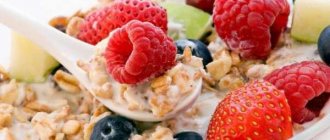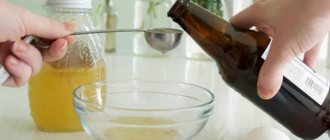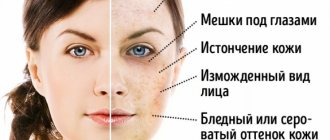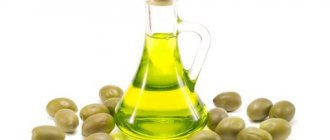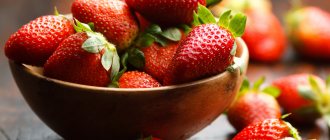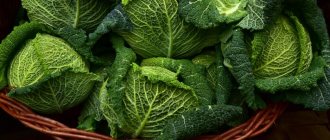Ginger
The roots of this plant contain vitamins C, A, B1, iron, phosphorus, and calcium. Ginger essential oils can “stimulate” metabolic processes in subcutaneous fat tissue, stimulate the synthesis of new collagen fibers, and cleanse the skin of rashes. Ginger is used in rubbing, massages, and for preparing baths.
Hair strengthening oil. Mix 1 teaspoon of ginger juice with 1 teaspoon of olive or burdock oil. Apply the mixture half an hour before washing your hair, rinse with regular shampoo.
Cream with ginger oil. Add a few drops of ginger oil (available at the pharmacy) to your favorite cream and you will increase its beneficial properties.
Article on the topic
Spicy root. What are the benefits of ginger?
Face mask with ginger and banana. Mash the banana with a fork, add 2 teaspoons of grated ginger or 1 teaspoon of ginger powder, 2 teaspoons of lemon juice.
Apply on face for 20 minutes, rinse with warm water. This mask is suitable for any skin type, it reduces swelling and improves blood circulation.
The most useful spices
Every housewife has, by the standards of past centuries, real treasures in some kitchen cabinet. You probably already guessed that we are talking about spices. In ancient times, they served as a monetary measure, and were considered a very status gift, and spoke of the high position of the owners of the house. They were brought from distant countries, used as preservatives and dyes, and, of course, as a flavoring additive. Today, this is no longer such a valuable product, and every home has dozens of jars or bags, which we often use not very consciously, and sometimes we even forget to use. For gourmets, spices are a real delight, because with them even the simplest dish begins to play with new colors, they add national flavor and make the food more refined. However, not everyone knows that it is also a very healthy food supplement. It is precisely because of their effect on the body that you need to know what, why and in what quantities to mix with food.
We usually use the words “spices”, “condiments” and “herbs” as synonyms, and few people know that spices are a generic name for the other two. Seasonings include vinegar, tomato paste or, for example, mustard. And spices are various herbs, pepper, garlic, cinnamon and so on. Sometimes you need to prepare seasonings yourself; spices are used in strict dosages, as they can easily spoil the dish.
Spices have antimicrobial and anti-inflammatory effects, are antioxidants, improve the functioning of the cardiovascular system, increase immunity and prevent the development of each spice. Each spice has not only unique taste, but also healing properties. Let's take a closer look at a few iconic options.
Pepper (black and red)
You definitely can’t do without it in the kitchen; it’s traditionally found in every home. And for good reason! It has a beneficial effect on the gastrointestinal tract, improving digestive and metabolic processes. Helps remove toxins, reduces the likelihood of thrombosis and cancer cells, and improves blood clotting. You probably didn’t know, but pepper is recommended for smokers, as it neutralizes the harmful effects of nicotine thanks to the elements it contains.
Garlic
It is used in standard and dried form. A well-known folk antibacterial remedy that kills germs, fights rods and parasites. It also increases sugar levels and prevents malignant cells from growing. In combination with ginger, this is a well-known remedy for accelerating metabolism and raising tone.
Bay leaf
Also most likely to be found in any kitchen. Our ancestors, just like us, added it to soups and broths. In addition to the pleasant aroma, the leaves also contain essential oils that help cleanse the mucous membranes and restore the functioning of the respiratory system. They stop the processes of fermentation and inflammation, and also calm the nervous system.
[sendpulse-form id=”3337"]
Ginger
This spice deserves to be sung in its praises and recommended for almost any health complaint. This is a real gift from nature containing, perhaps, all possible vitamins and minerals. It perfectly relieves inflammation and spasms, relaxes and soothes, promotes weight loss and improves immunity. It is extremely useful for women’s health, as it has a positive effect on hormonal levels, increasing libido, and relieving symptoms of toxicosis in the early stages of pregnancy.
Carnation
The ancients used the carnation flower to get rid of bad breath, which actually works. Today it is one of the most popular spices with a rich flavor effect. It has a beneficial effect on appetite and the functioning of the entire digestive system, and helps with bloating. Cloves are also useful for the nervous system, it calms and relieves muscle tension.
Turmeric
It is rightfully considered one of the most useful seasonings, as it regulates the functioning of the digestive system, improving microflora. Useful for all organs of the gastrointestinal tract: for the stomach, and for the intestines, and for the esophagus, and for the gallbladder. An excellent assistant for losing weight and restoring the body after severe shocks.
Cinnamon
A favorite addition to baked goods and desserts, it, however, speeds up metabolism, which promotes weight loss. An excellent option for replacing sugar for tea and coffee, and it also adds a spicy oriental aroma. Cinnamon regulates blood glucose levels and improves blood flow.
The list can be continued endlessly, because in the form of spices nature has given us not only a great variety of gastronomic variety, but also an excellent assistant in maintaining health. In conclusion, I would just like to remind you that moderation is important in everything. Do not use spices in case of severe diseases of the gastrointestinal tract or during periods of chronic exacerbations.
Cinnamon
The bark of an evergreen tree from the laurel family contains vitamins A, B1, B2, C, iron, potassium, calcium, and phosphorus. Cinnamon has antioxidant, antiseptic, antibacterial, anti-inflammatory, and antifungal effects.
Cinnamon scrub. 2 tbsp. Mix spoons of coffee grounds with 1 teaspoon of ground cinnamon and 2 tbsp. spoons of kefir. Massage lightly into face and body, then rinse in shower.
Bath with cinnamon and milk. Add 1 teaspoon of cinnamon to a glass of milk, bring to a boil, strain, and add to the bath. This bath moisturizes the skin, improves superficial capillary circulation and is especially suitable for dry skin prone to flaking.
Article on the topic
Mustard, star anise, ginger and other spices that will help you warm up
Spices-based body masks
- Anti-cellulite body mask made of cinnamon and ginger
Ginger and cinnamon are brave soldiers in the fight against orange peel, which so bothers many women. It has long been noted that these spices affect fat deposits, reducing the number of stretch marks and reducing the appearance of cellulite. Mix cinnamon and ginger in a ratio of 1:4, add a teaspoon of cocoa or coffee, dilute with milk or water to a paste. The mask should be applied in the evening to problem areas on the body, and after 15 minutes, rinse off. You will notice improvements within a week if you apply the cinnamon and ginger body mask every other day.
- Cinnamon body mask
It makes the skin much smoother and gives it tone. It’s easy to prepare: cinnamon powder is diluted in milk to form a paste. The mask is applied to the body for 10-15 minutes, after which it is washed off.
- Cinnamon scrub
Many people use body scrubs based on ground coffee, salt, and sugar. But not everyone knows that cinnamon is also an excellent base for a scrub. It can be used to cleanse rough areas of the skin, adding cocoa powder if desired.
Carnation
Clove tree buds contain a large amount of essential oils; they have antibacterial, antioxidant, and anti-inflammatory properties. Cloves contain a lot of tannins, vitamins A, B, C, E, K, iron, potassium, magnesium, calcium, sodium, phosphorus, manganese, copper, zinc.
Lotion for problem skin. 1 tbsp. Pour a spoonful of cloves into a glass of boiling water, heat for 30 minutes in a water bath, leave for 3 hours, strain. Wipe your face with the infusion twice a day after washing. There will be much less inflamed nodules.
Spice-based hair masks
Of course, the beauty of hair depends on heredity. If you inherited gorgeous hair from your grandmother, and you are not used to ruining your hair with dyes and heat styling, you don’t have to worry too much about the condition of your hair. But, unfortunately, the vast majority of women need to use masks to maintain the attractive appearance of their hair. And including spices in these masks is highly recommended.
Mustard mask that stimulates hair growth
Take the yolk of one egg, 2 tablespoons of water and one teaspoon each of colorless henna, gelatin, dry mustard. First, pour the gelatin with water and leave for a while to swell. After this, mix mustard, henna, and yolk. Apply the resulting mixture to your hair along the entire length, leave for half an hour. Wash off the mixture with cool water; you don’t need to use shampoo.
Rinse for shine on dark hair
A mixture of spices such as pepper, cloves, and cinnamon significantly improves the appearance of dark hair. They become alive and shiny. To prepare the mouthwash, take one teaspoon each of ground cinnamon and allspice (it is advisable to use freshly ground pepper), ½ teaspoon of ground cloves, and a glass of boiling water.
Pour boiling water over the spice mixture and let steep for 30 minutes. The water should cool to a temperature acceptable for the skin. Strain. Rinse clean hair with the resulting mixture, wring it out and rinse again with the liquid remaining after the first rinse.
Turmeric
This spice contains essential and fatty oils, polysaccharides, phenolic compounds - curcumin, which gives a bright yellow color, iron, magnesium, potassium, phosphorus, calcium, iodine, vitamins B3, B2, B6, C, E, K. Turmeric has pronounced anti-inflammatory properties properties.
Mask for aging facial skin. Mix 1 teaspoon of turmeric with 1 tbsp. a spoonful of sour cream and 1 teaspoon of honey. Apply the mixture to the face, neck and décolleté, rinse with warm water after 20 minutes. This mask cleanses the skin, improves blood circulation and lymphatic drainage, stimulates cell renewal, and protects the skin from the damaging effects of free radicals.
Article on the topic
Ginger, turmeric, cardamom, cinnamon... What spices will help fight the flu?
Sage
All the best spices have unique properties. And sage is perhaps one of the herbs on our list. The leaves of this perennial herb are ground to create a wonderful seasoning. It is in this form that sage ends up in our kitchen. In addition, sage leaves are used to make a wonderful essential oil that can lower blood pressure. Back in the Middle Ages, sage gained fame as a healing herb. Recent studies have shown that this spice improves brain function. Sage, like other top spices, is literally loaded with antioxidants. In sage you will immediately find 160
various hemiphenols, which act as antioxidants in your body.
Another reason to take a closer look at sage is that it is effective in lowering blood sugar levels. Although sugar is necessary for the body to function, excess sugar leads to metabolic disorders and even diabetes. One recent study found that sage is effective as a prescription drug for lowering blood sugar. Finally, sage reduces levels of bad
cholesterol (low-density lipoprotein), which accumulates in the arteries, causing cardiovascular disease - the leading cause of premature death.
READ ALSO: Health benefits of cinnamon, harm and side effects
Cardamom
The capsule fruits of this plant from the ginger family contain seeds rich in essential oils, vitamins A, C, B1, B2, PP, calcium, phosphorus, potassium, and iron. It is most convenient to use cardamom oil. It is a good antiseptic and effective against pustular rashes, nourishes the skin and increases its elasticity, improves complexion, and slightly brightens the skin.
Mask for dry skin. Grind ½ avocado in a blender, add 5 drops of cardamom oil, 1 teaspoon of peach, almond or olive oil. Apply for 20 minutes on the face, neck and décolleté. This mask is effective against early wrinkles, softens and nourishes the skin well.
Peppermint
Peppermint is a perennial herbaceous plant of the Lamiaceae family that has a wonderful aroma. Mint has found application in cooking, perfumery and even medicine. For centuries, mint has been used in folk medicine. The next time you sip a delicious mojito or aromatic soothing tea, know that mint has many beneficial properties. What can mint do? Research shows that peppermint works as a muscle relaxant. It will not only help you relax after a hard day at work or work out at the gym, but will even relieve migraines. The menthol in peppermint increases blood flow and is slightly cooling, which helps relieve pain. And one recent study found that peppermint was as effective as a prescription medication in relieving headaches. Peppermint's ability to relax muscles makes this herb an ideal choice if you suffer from insomnia. Another reason to choose peppermint is that it is great for restoring energy. In addition, mint can fight bacterial infections caused by staphylococcus. Finally, peppermint can help combat seasonal allergies. Rosmarinic acid
, one of the components of peppermint, reduces the main symptoms of allergies - runny nose, itchy eyes and asthma.
Important warning!
Face and hair masks based on spices can significantly improve complexion and hair condition. But they should not be abused. Using them too often can have the opposite effect. Any mask you want to use for your face or hair, first test it on a small area of skin - your wrist or elbow. If after a few hours there is no reaction, then you can use this composition.
Never use spice-based masks on your face or body if you have inflamed skin, damage or irritation.
